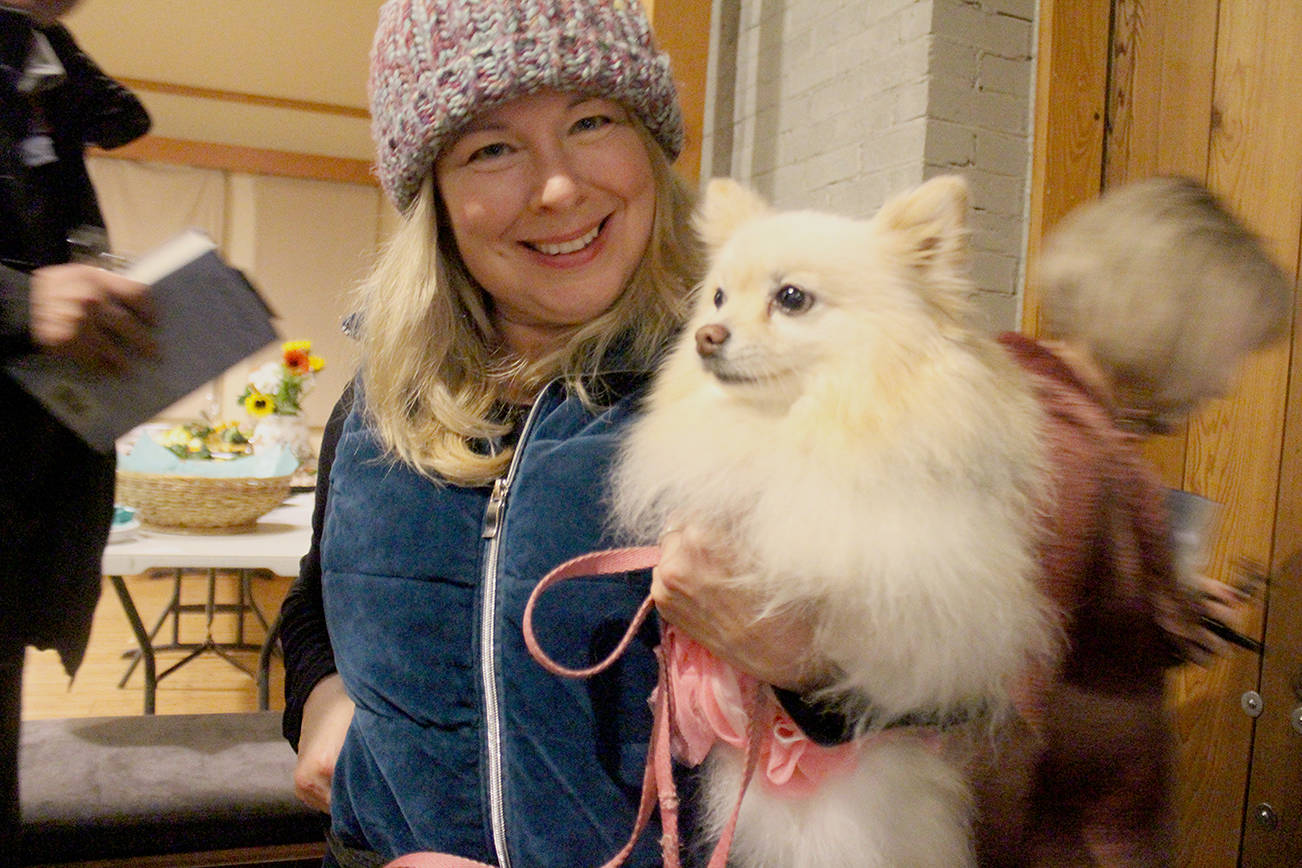Dog and medical enthusiasts gathered to support and learn more about PADs for Parkinson’s. The nonprofit that trains dogs to sniff out Parkinson’s Disease held a fundraising and outreach presentation on Nov. 16 at Brickworks.
“There is no definitive laboratory diagnosis for Parkinson’s,” PADs Founder Lisa Holt said. Hold started PADs in March 2016. According to the PADs’ website, PADs has trained more than 20 dogs with an accuracy of 90 percent or higher.
Parkinson’s is a degenerative disorder of the central nervous system that causes shaking and loss of motor skills. Holt noted it is also one of the few diseases that is known to cause a chemical change in the skin. That skin alteration emits a distinct odor. According to Holt, researchers believe that change occurs 10-15 years prior to tremor development. Doctors have told Holt, she said, that if a Parkinson’s patient could be treated even five or six years before tremors set in, it may be possible to add 40 years to the person’s life.
Holt turned the microphone over to Maria Goodavage, author of “Doctor Dogs: How Our Best Friends Are Becoming Our Best Medicine.” Goodavage traveled around the world researching the vast ways canines are being trained for use in the medical field.
Canines with their amazing olfactory senses, Goodavage explained, are able to detect more than just oncoming seizures in epileptic patients. Dogs can smell cancer, provide emotional support for PTSD and anxiety sufferers, and alert diabetics of blood sugar issues. Dogs trained to assist diabetics can also alert the person if their blood sugar is too high or too low. If it’s low, she explained, the dog will make a downward dog motion.
“Dogs don’t need a diagnosis to work miracles,” Goodavage said.
Eight PADs trained dogs — including a Pomeranian in a tutu, a border collie, a standard poodle and a black lab — were present to demonstrate their sniffing abilities. When presented with five choices, each dog was able to find the Parkinson’s sample within seconds. The canines indicated they had found the sent by sitting in front of the sample, at which point they were given a piece of turkey as a reward.
“It’s not even about the treat,” Holt said. “As you can see, these dogs love what they do.”
For more information about PADs, visit https://www.padsforparkinsons.org/.




